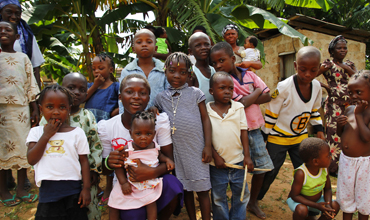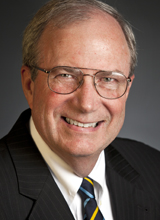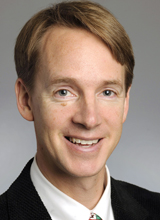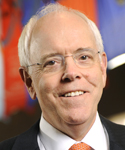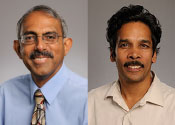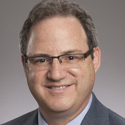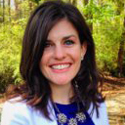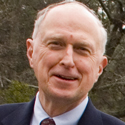
 Georgia General Assembly 2015 Georgia General Assembly 2015 |
 New access to cache of research data New access to cache of research data |
 New crop of nurses for VA system New crop of nurses for VA system |
 In brief In brief |
| May 18, 2015 | ||||||||||||||
Gates Foundation names GHI lead partner in child health network
At its Global Partners Forum in Seattle earlier this month, the Bill & Melinda Gates Foundation announced a new global health surveillance network aimed at preventing childhood mortality in developing countries, particularly in sub-Saharan Africa and south Asia. The Emory Global Health Institute (GHI), which houses the U.S. office of the International Association of National Public Health Institutes (IANPHI), will be the lead partner in the new network.
The Gates Foundation plans an initial commitment of up to $75 million for the initiative. The Child Health and Mortality Prevention Surveillance network, or CHAMPS, will help speed and improve acquisition of data about how, where, and why children are getting sick and dying. CHAMPS will partner with governments and national public health institutes to diagnose, characterize, manage, treat, and prevent specific causes of disease. Disease surveillance sites in areas of high childhood mortality will offer a long-term approach to information management, laboratory infrastructure, and workforce capacity, which are vital resources in areas with inadequate public health infrastructure. The goal is to provide data to help develop policy, set priorities for research, and provide needed medicines and vaccines. The network could also be repurposed quickly in the event of an emerging disease epidemic, such as Ebola. CHAMPS is envisioned to be a 20-year project based initially at six sites but eventually could be expanded to as many as 20 sites. "Seven million children die from preventable causes annually around the world," says Jeff Koplan, Emory's VP for global health. "Many of these deaths could be prevented with better vaccines, antibiotics, diagnostics, advanced medical procedures, improved nutrition, behavior modification, and access to care. This surveillance network will help the Gates Foundation and other stakeholders generate the data needed to develop targeted prevention, diagnosis, and treatment for children in developing countries." The Emory GHI will collaborate with IANPHI, the CDC, the Public Health Informatics Institute (a program of the Task Force for Global Health), and Deloitte Consulting LLP. Read more. Georgia General Assembly of 2015
Upon final adjournment of the Georgia General Assembly's annual session, the Governor had 40 days to review legislation that passed the House and Senate and determine which of those bills he would sign or veto. This period ended on May 12. Governor Deal signed more than 200 bills, including the FY 2016 state budget, and he vetoed a handful of bills. Thanks for your support and interest. Should you have any questions or comments, please email or call me at 404-623-4457.—Charlie Harman Center provides access to cache of research data
Over the past eight years, the Center for Health Discovery and Well Being (CHDWB) has been accumulating vast amounts of data in a program designed to test the feasibility of predicting one's future health outlook. Participants in this program submitted annually to a large battery of tests and questionnaires (about 2,000 data points collected per visit) designed to provide a comprehensive picture of their current health status (bone density, cognitive function, cardiopulmonary fitness, sleep quality, mental health, social support, stress level, and much more). They also underwent extensive lab testing, both traditional tests such as blood chemistry and hormone profile and more exotic testing for regenerative cell potential, oxidative stress and inflammation, genetic and genomic analysis, and metabolomics.
The center now has comprehensive five-year data on about 500 of the original participants enrolled in 2007 and officially made this data available this spring to researchers here and at Georgia Tech. "Over the past two years, the center has undergone many changes and transitioned to a new phase of its purpose," says Greg Martin, who directs both the CHDWB and the Emory-Georgia Tech Predictive Health Institute. The center remains part of the Predictive Health Institute, but it has moved locations and is now also closely aligned with the ACTSI. "We're now beginning to be able to derive findings from the vast amount of data we've collected, and we want to make this available for others to study." In 2013 the center moved from its original location at Emory University Hospital Midtown to ACTSI's clinical research network location on the ground floor of Emory University Hospital. The original cohort of participants who entered the program in 2007 are no longer seen in person, but the center still gathers annual long-term follow-up data on them via an online questionnaire. Meanwhile, over the next two years, the center will continue to conduct lengthy, in-person annual work-ups ("like a primary care visit times 10," says CHDWB coordinator Jane Clark) on its final cohort of participants who entered the program in 2012. Participants come mostly from the Emory community, including both students and employees, and range in age from 20s to 80s, with an average age of 50. Researchers wishing to access the center's current cache of data and/or specimen samples simply submit an online request, says Clark. Requests are reviewed by a data committee, with approval usually taking a few weeks. "Since I became director of the center, I have gotten a lot of questions about the status of the center and predictive health as a whole," says Martin. The original goals of the Predictive Health Institute and its role in Emory's strategic plan remain, he says: (1) to characterize health and determine risks before they become problems, both for individuals and populations, and (2) to implement curricula to help the next generation continue to define, develop, and use predictive health. In terms of the educational goal, he says, Emory students can minor in predictive health via the Center for the Study of Human Health; Emory offers a PhD as part of the Molecules to Mankind program; and Georgia Tech offers a master's degree in systems engineering related to predictive health. In terms of the CHDWB, the program has helped generate $30 million in funding for investigators and has spawned two books and 44 journal articles, including a recent one in the Journal of Personalized Medicine, summarized here. "The real value of the center's work, however, continues to be in the future," he says. "It's hard to predict health events in months or even a few years. It will be several years before we can look back and ask, 'How did that data predict what is happening right now?' "We already know the gamut of tests we use are likely to be powerful predictors of future health, but for some people and some conditions a smaller group of complementary tests may suffice." Nurses ready to care for veterans
Being an Emory nursing student didn't keep Isaac Newton from reading to his two sons at bedtime. Their nightly repertoire of books includes Dr. Seuss's Oh, the Places You'll Go, a perennial favorite both with children and with newly minted graduates like Newton, who received his BSN this month. "I love this book because in very simple language it tells readers of the great opportunities they face," Newton said during a recent recognition ceremony for the first nursing students to complete the VA Nursing Academic Partnership (VANAP) program. Newton is one of 21 graduates who received specialized training in mental health, traumatic brain injury, home-based health care, palliative care, women's health, and homeless care at the Atlanta VA Medical Center (VAMC). That's in addition to other courses and clinical rotations that BSN students undertake during two years of study. The Nell Hodgson Woodruff School of Nursing and the VAMC launched VANAP in 2013 with $4 million in funding from the U.S. Department of Veterans Affairs. The funding supports additional faculty positions at Emory's nursing school and an increase of 100 BSN students over five years. In turn, many of those students will join the VA workforce to help offset a major nursing shortage. The need for qualified nurses is top of mind for leaders at the VAMC, which is part of the largest integrated health system in the country. "We are one of the largest and fastest growing medical centers in the country," said Leslie Wiggins, Atlanta VAMC director (front row, far left in photo above). "We've gone from serving 96,000 to 100,000 veterans in the past 12 months. "This first cohort of students is very special, and it's going to put us on the map in a way that we've wanted to be for a long time," said Wiggins, who began her own career as a nursing assistant and served as a nurse executive with the Detroit VA Medical Center. "By the way," she added, "I have about 100 or more nursing jobs open." Newton is one of 14 students who will join the VAMC this year.—Pam Auchmutey |
| From the Executive VP
Georgia legislators tie physician payment to quality of care
For years physicians have confronted uncertainty regarding reimbursement and access to care for Medicare beneficiaries. Congress recently took bipartisan action to repeal the flawed sustainable growth rate (SGR) formula, which tied physician reimbursement to economic growth. In its place, Congress wisely linked physician payments to quality of care. We are grateful to Senator Johnny Isakson, as well as Representatives Allen, Bishop, Carter, Collins, Hice, Johnson, Lewis, Price, A. Scott, D. Scott, Westmoreland, and Woodall, for voting in favor of the Medicare Access and CHIP Reauthorization Act. This repeals SGR and extends funding for the Children’s Health Insurance Program (CHIP). The Woodruff Health Sciences Center depends on a funding stream that ensures consistency to our providers, educators, and researchers. Repealing SGR has been a major legislative goal for us, and we are pleased that our congressional delegation made it a reality. Please direct questions and comments to evphafeedback@emory.edu.
Commencement 2015
During the main commencement ceremony, Emory trustee emeritus Randall Rollins received an honorary degree. His family has provided generous gifts to the RSPH, WHSC, medical school, Winship Cancer Institute, Yerkes, and Candler. Also during the main ceremony, the following faculty received the Emory Williams Award for Teaching: Lisa Muirhead (nursing), Gordon Churchward (medicine), and Hannah Cooper (public health). Cooper also received the Student Government Association Professor of the Year Award, and Amita Manatunga (biostatistics) received the Thomas Sellers Award, both from Rollins. The medical school honored Wendy Armstrong (infectious diseases) with the Evangeline Papageorge Distinguished Faculty Award. PhD graduate Amanda Garcia-Williams (public health) received the Marion Luther Brittain Service Award, Emory's highest student honor. Anita Corbett (biochemistry) received the Eleanor Main Graduate Faculty Mentor Award, and Orion Keifer, an MD/PhD recipient in neuroscience, received the Eleanor Main Graduate Student Mentor Award. Healthcare Heroes 2015 Receiving the Lifetime Achievement Award, WHSC CEO Wright Caughman topped the list of winners for this year's Health Care Heroes Awards, sponsored by the Atlanta Business Chronicle. Other winners include Bruce Ribner (physician category), Mike Davis (rising star), William Mahle and Thomas Burns (innovation), and the Grady EMS Biosafety Transport Team (allied health), led by Alex Isakov. Finalists include Hope Bussenius (innovation), Sheryl Heron (physician category), Anne Spaulding (community outreach), and Toni Thomas (allied health professional). Read more. New partnerships with India
Venkat Narayan (public health) leads the U.S. component of the new Center for Control of Chronic Conditions in New Delhi, created to further studies of diabetes, cardiovascular disease, stroke, cancers, mental health, injuries, and other morbidities in India. Read more. As a result of research led by Murali-Krishna Kaja (pediatric infectious diseases), the NIH has awarded a five-year, $3.4 million grant to fund a partnership between the Emory Vaccine Center and the ICGEB in New Delhi to study dengue virus infection in India. Read more. BPI scholar applications due Friday, June 5 The Office of Business Practice Improvement (BPI) is accepting applications, due Friday, June 5, for its next BPI Scholars class, which begins in September. BPI Scholars is a one-year professional development program designed to help early- and mid-career Emory staff members develop project management, communication, analytical, and leadership skills. Participants will apply these skills in a practice-improvement opportunity identified within their home unit at Emory. IRB review help Need assistance determining if your work is research or quality improvement? Emory's Institutional Review Board (IRB) offers a helpful web resource, "Does My Project Need IRB Review?" Refer to the headings, "Quality Improvement" and "Request a Determination" in the left-hand menu. To speak with an IRB team member, call 404-712-0720. Appointments
Gary Bassell was named chair of Cell Biology. Bassell has a joint appointment in neurology and directs the Laboratory of Translational Cell Biology to study how messenger RNA is transported and regulated within neurons and how those processes are disrupted by neurologic diseases. Read more.
Carla Berg (public health) was appointed to the Winship Cancer Institute Executive Committee as associate director for population sciences. Berg's research focuses on tobacco control and cancer survivorship. Dane Peterson, Emory Healthcare Hospital Group president, will serve as interim CEO of Emory Saint Joseph's Hospital following the departure of Craig McCoy in June to become CEO of Bon Secours St. Francis Health System in Greenville, SC. Notable
Angela Amar (nursing) received the Excellence in Practice and Policy Award from the Nursing Network on Violence Against Women International. Read more.
Former HealthSTAT president Jennifer Besse, an MSN student in nursing, recently accepted the national Edward R. Loveland Memorial Award from the American College of Physicians on behalf of HealthSTAT. HealthSTAT includes health sciences students at Emory and across Georgia. James Curran (dean, public health) and Stephen Warren (human genetics) were elected members of the American Academy of Arts and Sciences. Read more.
Heather Hamby (exec assoc dean, medicine) was named a member of the Leadership Atlanta Class of 2016.
John McGowan received the 2014–2015 Charles R. Hatcher Jr. MD Award for Excellence in Public Health, presented by Rollins School of Public Health. McGowan is a longtime professor of epidemiology and global health and professor of medicine and pathology. He also coordinates the MD/MPH program. Patty Olinger (Environmental Health and Safety) is one of 13 U.S. experts named to a new national Task Force on Laboratory Safety by the Association of Public and Land-grant Universities. Read more.
Adeboye Osunkoya (pathology) received the Arthur Purdy Stout Prize, one of the top honors in surgical pathology in North America. Events May 28-29: 2nd Annual ACTSI–CERP Community Partnership Forum. Morehouse School of Medicine. More info. May 29: 2nd Annual Advancing Healthcare Quality Research at Emory forum. HSRB auditorium. More info. June 13-14: 4th Annual Southeastern Immunology Symposium, WHSCAB auditorium. More info. Oct. 3: 5th annual Winship Win the Fight 5K. Atlanta Braves president John Schuerholz is grand marshal. More info. |

